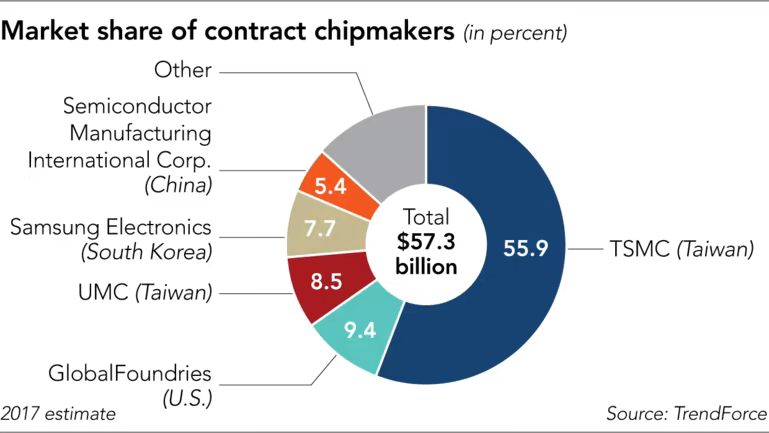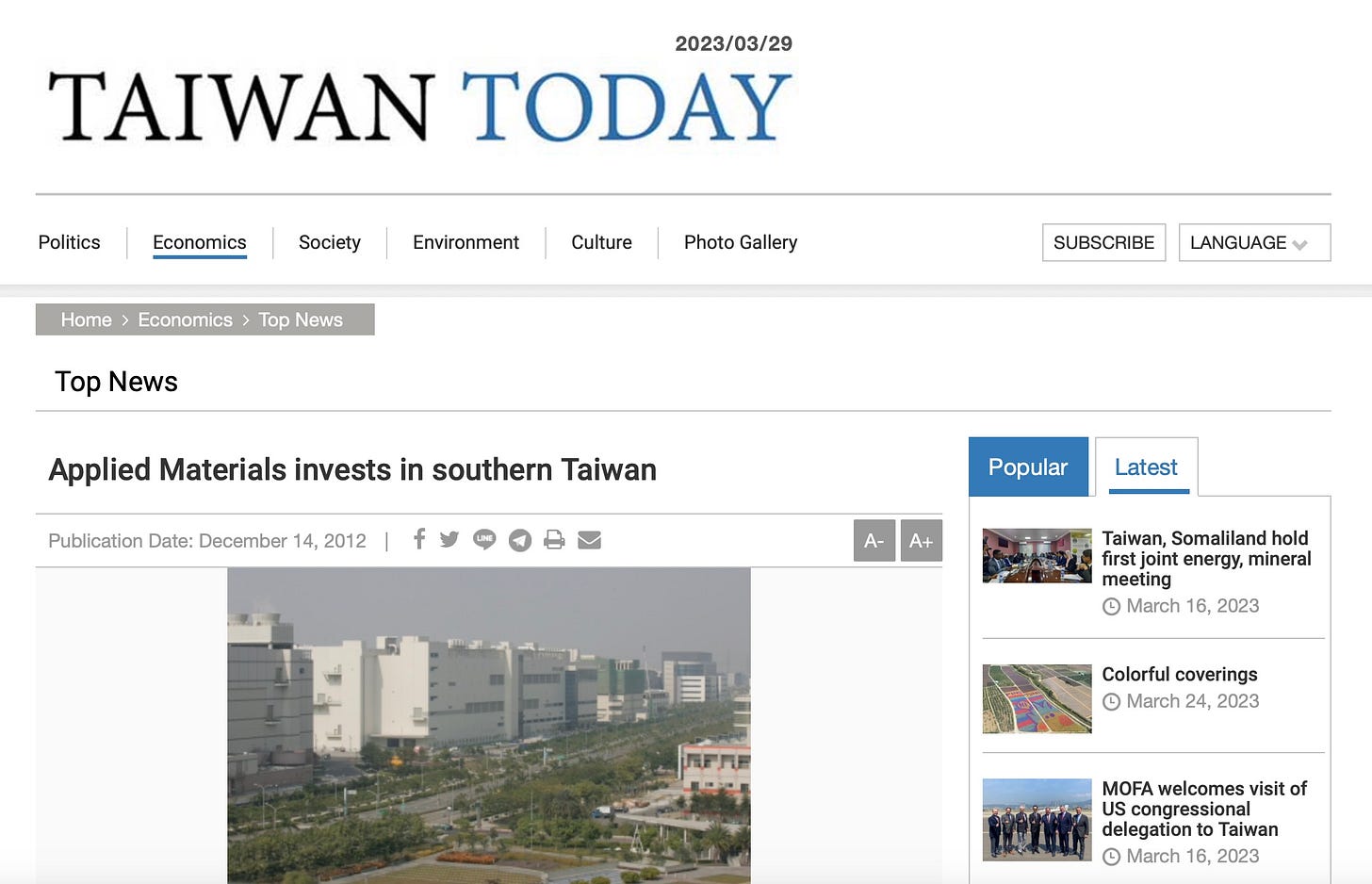Taiwan, and How Palantir is Crucial to the Semiconductor Industry
And how Taiwan may benefit from it
The Republic of China, or Taiwan, has long been known as one of the leading producers of semiconductors in the world. The country is home to some of the largest semiconductor manufacturers, such as TSMC and UMC. These companies produce chips that are used in a wide range of products, including smartphones, laptops, and cars.
One of the biggest challenges the semiconductor industry faces is managing the vast amounts of data that is generated during the manufacturing process. Data that could be used to bring costs down and accelerate innovation, and this is where Foundry comes in.
In 2021 Palantir, in partnership with Merck, announced the launch of Athinia. The platform is used by industry leaders in delivering a secure collaborative data analytics platform for the semiconductor industry. Guess what’s the company that produces most of the chips worldwide? Just a hint… It’s in Taiwan.
TSMC is the largest microprocessor manufacturer, and the fact they are providers of these chips to the largest consumer electronics companies in the world makes one think they are benefiting from Athinia, in one way or another. And I mean through suppliers or using it directly, behind a codename.
The platform uses advanced algorithms to identify patterns and insights in the data, which can help manufacturers optimize their production processes and improve product quality, while also bringing time used for a specific task to a low.
It’s a match made in heaven, and Foundry has been decisive for semiconductor manufacturers in Taiwan. This isn’t me speculating, but I have some electronics manufacturers that do business in Taiwan inside the DataBase, like Applied Materials and Micron, who publicly announced they were joining the platform. I’ve also seen one of the biggest consumer electronics corporation in the world joining Foundry in the last 2 weeks, adding to the excitement in the industry.
In addition to helping manufacturers optimize their production processes, Foundry has also been used to help companies manage their supply chains. The platform can be used to track shipments, monitor inventory levels, and identify potential supply chain disruptions. That is, of course, bearing in mind the tremendous challenges that await Taiwan in relation to the diplomatic conflict with the PRC.
The combination of Taiwan's expertise in the semiconductor industry and Palantir Foundry's powerful data management capabilities have been a game changer for the industry. And my bet is we will begin to see the first official results in Taiwan pretty soon, even if American companies are already seeing an impact today.
As I’ve said before, links show US companies doing operations in Taiwan using Foundry, but one could think Taiwanese corporations are benefitting from Athinia partnerships and network effects.
But the semiconductor industry is not without its challenges. One of the biggest challenges facing the industry today is the shortage of semiconductors. The pandemic has disrupted supply chains and caused a surge in demand for electronics, which has put a strain on semiconductor manufacturers. Guess what company is helping this through Foundry with known clients and partnerships? Yeah, Palantir.
In conclusion, Taiwan, Foundry, and the semiconductor industry form a powerful combination. I’m very excited of what I’m already seeing and can only dream of the big things that will come out of this, with the potential of it becoming one of the biggest markets for Palantir - considering Gotham for the government side, too.




